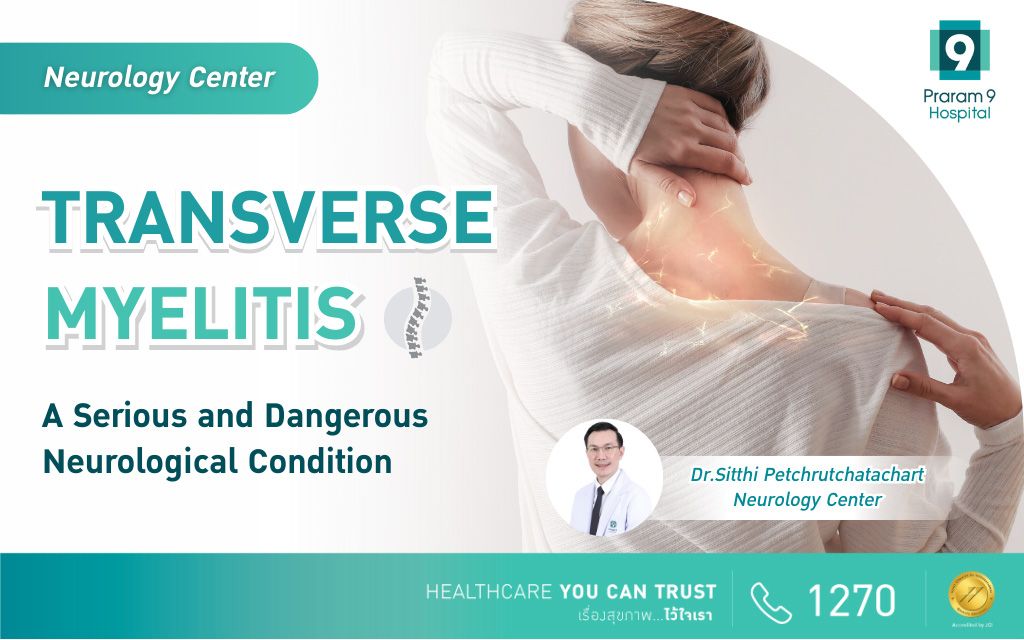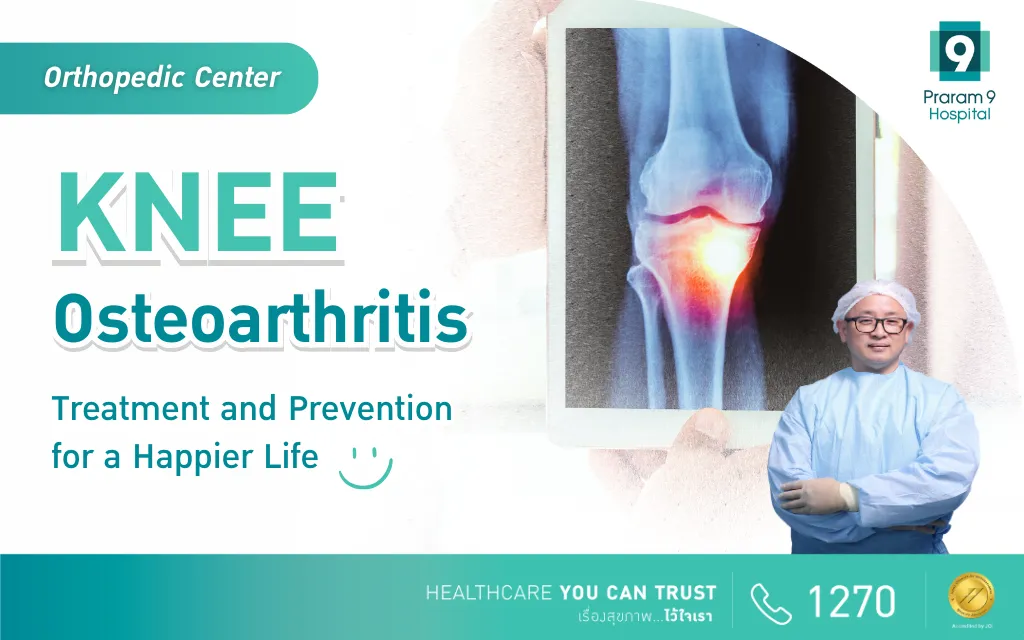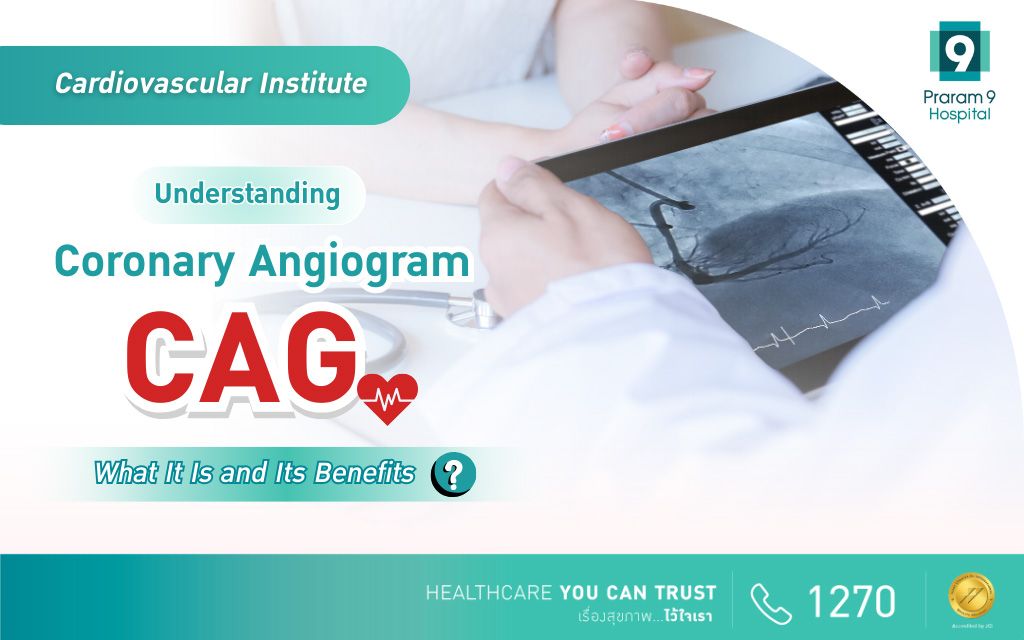Health Articles
Knowledge
Partial Knee Replacement Surgery: A Treatment Option for Osteoarthritis with Minimal Incision and Quick Recovery
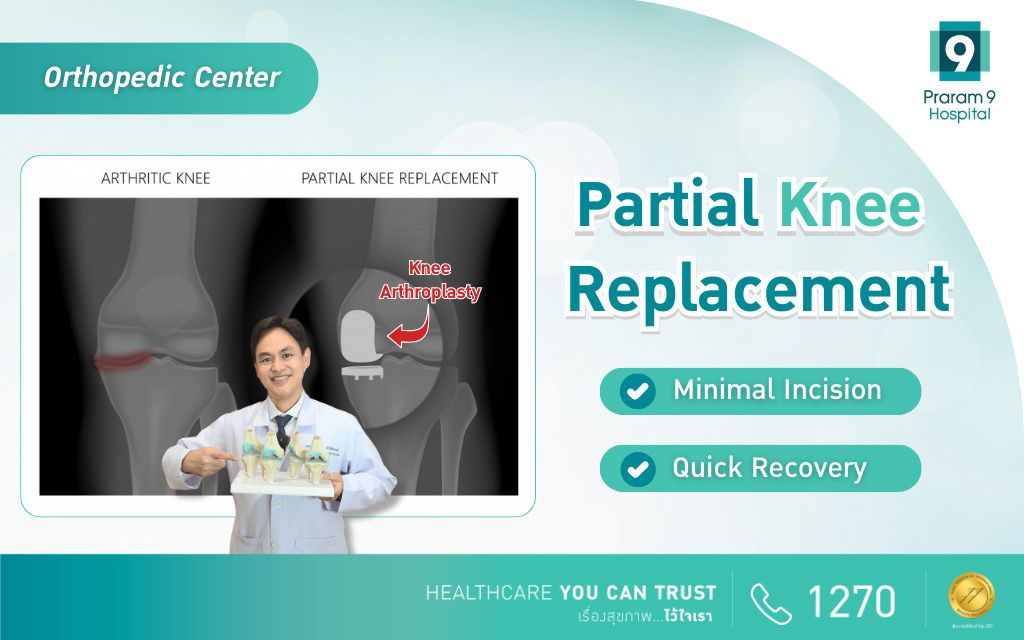
Knee osteoarthritis is a common condition, often seen in older adults, leading to knee pain and difficulty walking. However, it doesn’t solely affect the elderly; working-age individuals and middle-aged adults can also develop knee osteoarthritis.
Surgical intervention is often the primary treatment for advanced knee osteoarthritis. Thanks to advancements in medical technology, a minimally invasive technique known as partial knee replacement surgery (Unicompartmental Knee Arthroplasty or UKA) has been developed. This procedure uses a smaller incision, resulting in faster recovery and serving as an alternative to traditional full knee replacement surgery.
What is Partial Knee Replacement Surgery (UKA)?
Partial knee replacement surgery, or Unicompartmental Knee Arthroplasty (UKA), involves replacing only the damaged portion of the knee joint with a metal implant while preserving the healthy parts of the joint. In many cases of knee osteoarthritis, the damage primarily affects the inner side of the knee joint (medial compartment). In the early stages of the disease, this targeted approach allows surgeons to retain the unaffected parts of the joint.
In the past, total knee replacement surgery was the standard treatment, which required removing ligaments and cartilage that were still intact. This often resulted in a longer adjustment period for patients to regain knee function for natural activities like sitting cross-legged or kneeling. UKA helps address these challenges, providing a more natural-feeling recovery.
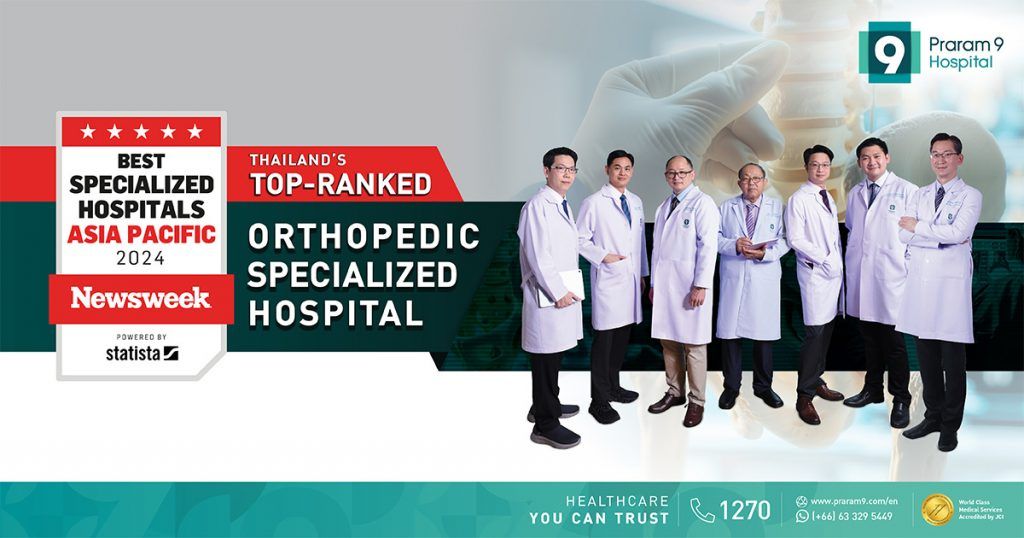
Praram 9 Hospital : Thailand's "TOP RANKED"
Orthopedic Specialized Hospital.
Partial Knee Replacement Surgery (UKA) Packages
Price Starting from : 200,000 THB
Advantages of Partial Knee Replacement Surgery
- Preserves healthy ligaments and cartilage.
- Effectively relieves symptoms of osteoarthritis, such as knee pain, joint stiffness, and instability.
- Enables patients to bend and use their knees naturally.
- Small incision with minimal scarring.
- Reduced blood loss during surgery.
- Lower risk of infection.
- Faster recovery, with hospital stays as short as 1-2 days.
- Allows for future total knee replacement if further degeneration occurs.
Who Is a Candidate for Partial Knee Replacement Surgery?
Doctors carefully evaluate each patient to determine suitability for UKA. Common criteria include:
- Osteoarthritis localized to one side of the knee.
- Mild to moderate disease progression with minimal bone damage.
- Healthy cartilage in the unaffected knee compartments and a stable kneecap.
- Good range of motion, allowing adequate knee bending and extension.
- Minimal knee deformity or bowing.
- Suitable for patients of any age.
Limitations of Partial Knee Replacement Surgery
While UKA is a promising option, it has some limitations:
- Requires careful patient selection by an experienced specialist.
- Surgery must be performed by a highly skilled and trained orthopedic surgeon.
- Unsuitable for patients with excessive weight.
- Unsuitable for those with severe knee deformities or advanced osteoarthritis.
- Unsuitable for patients with certain bone diseases like osteoporosis, rheumatoid arthritis, or inflammatory joint conditions.
- Not recommended for individuals engaged in high-impact sports, as these activities may accelerate joint wear.
Longevity of a Partial Knee Replacement
Research indicates that partial knee replacements are safe and can last for 10-20 years. A key advantage of this technique is its ability to maintain near-natural knee functionality, including full bending and extension, as well as performing daily activities like kneeling or squatting. Additionally, if osteoarthritis progresses, a total knee replacement remains an option in the future.
Conclusion
Partial knee replacement surgery (UKA) provides a minimally invasive solution for managing knee osteoarthritis. By preserving healthy ligaments and cartilage, this procedure promotes faster recovery and enables natural knee functionality. However, the suitability of this procedure must be assessed by an experienced specialist to ensure the best outcomes and patient safety.
For more information or urgent, please contact
TEL: 1270 (Local) or +662 202 9999
Email: [email protected]
You can consult a doctor from anywhere through video calls.




